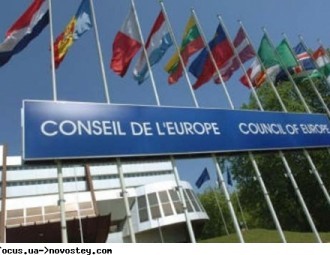Valery Karbalevich: Belarusan authorities don’t really want to enter PACE

With his latest decisions re political prisoners Lukashenka makes us understand that he isn’t very willing to go to the Eastern Partnership Summit at Riga.
On April 22 the President of the Parliamentary Assembly of the Council of Europe, Anne Brasseur, spoke about the situation in Belarus on April 22 in Strasbourg. She recapped the conditions for resuming contacts with the official Minsk, which are a moratorium on the death penalty, release of political prisoners and free elections. Until the implementation of these three conditions, renewal of high-level contacts between PACE and the official Minsk, as well as the return to our country of the special guest status, which Belarus was deprived of in April 2010, will remain out of the question.
The first evidence of such progress could be future presidential elections 2015.
Nikolai Samoseiko, the chairman of the permanent commission for international affairs of the House of Representatives of the National Assembly of Belarus, at the meeting of the PACE Committee on Political Affairs and Democracy on 21 April talked about the determination of the official Minsk to return our special guest status in PACE.
Is Minsk ready to fulfill the named conditions for restoring its status in PACE? And does the official Minsk actually need such PACE, for which “peacemaking efforts” of the authorities isn’t enough?
The prospects of mutual relations between Belarus and PACE “EuroBelarus” Information Service is trying to understand that together with the political scientist Valery Karbalevich.
- Will the official Minsk fulfill these conditions that are high on the agenda for 5 years already?
- I don’t think so. It was clear from the beginning that these terms are impossible to realize for today’s Belarusan regime. The terms are tough; they haven’t changed, which is surprising, considering the warming in relations with the EU and the US. Belarus didn’t fulfill these conditions even when it had the special guest status in PACE: no free elections were held, no one abolished the death penalty, political prisoners have been imprisoned. I think that the terms of returning the special guest status in PACE have even become tougher.
- What is it caused by?
- I’m at a loss. The President of the Parliamentary Assembly of the Council of Europe repeated the principles this organization is based at. And it is an undeniable fact that Belarus is far from their implementation.
- In contrast to the other European structures, PACE isn’t ready to make unconditional concessions to the official Minsk in exchange for its “peacemaking efforts” in the Russia-Ukraine conflict. In this case, are the Belarusan authorities interested in restoring the special guest status in PACE? Do they need such PACE?
- From the statements made by the representatives of the official Minsk we can understand that Belarus is allegedly interested in improving relations with PACE. But I think that Lukashenka is interested neither in close cooperation of Belarus and PACE nor in membership of the country in the Council of Europe. PACE doesn’t give Belarus anything in practical sense: we can’t expect any financial support from it. It is exclusively a human rights organization, which only imposes additional obligations in the human rights sphere. What for do Belarusan authorities need it. Council of Europe requires abolition of the death penalty, which is unacceptable for Lukashenka.
Imagine the situation: Belarus was admitted to the PACE. Belarusan authorities got the right to appeal to the European court, which will decide in favor of Belarusan citizens – and that is an additional headache for the Belarusan authorities.
Belarusan authorities don’t really want to enter PACE.
- At the meeting with Johannes Hahn, the European Union’s commissioner for European neighborhood policy and enlargement negotiations, Lukashenka demanded to update the EU-Belarus relations. Why doesn’t EU take the same principal stance as PACE does?
- If we consider the formal side of the question, sanctions against Belarus aren’t lifted; so by and large, attitude towards Belarus hasn’t changed at the level of official decisions. We see warming of relations when it comes to intensification of contacts and increase in the level of these contacts: the EU commissioner visited Belarus for the first time since 2010.
On the one hand, Belarus-Europe relations are getting unfrozen, on the other – nothing really changed.
- How big is the possibility that Lukashenka will be invited to Riga?
- With his latest decisions towards political prisoners Lukashenka seems to say that he doesn’t actually want to go there. By this I mean rapid court of Mikalai Statkevich and Yury Rubtsou, demonstrative refusal to pardon political prisoner Artsiom Prakapenka, new term for Mikalai Dziadok just before his release. Belarusan authorities are demonstrating that they don’t want to Riga in every possible way.
- The reference point of probable reboot of relations between the official Minsk and PACE is presidential campaign. Should we expect liberalization of the current presidential campaign?
- No, we shouldn’t. The current presidential campaign will take place in even more tough conditions that the presidential campaign of 2010; I think it will be similar to the elections of 2006 – in tough conditions and with repressions.
I don’t think that after these “elections” Belarus-EU relations will change principally. The EU won’t have any grounds to talk about the progress during elections; but on the other hand, there will be no decisions that toughen the European attitude towards the Belarusan regime. According to the prognosis of the presidential campaign 2015, there will be no Maidan, no Ploshcha, no mass protests, which means that no serious repression will take place. It might be the first time when no presidential candidate will end in prison.
My prognosis is that the presidential election 2015 will change little in relations between Belarus and the West.
-
03.01
-
07.10
-
22.09
-
17.08
-
12.08
-
30.09








































